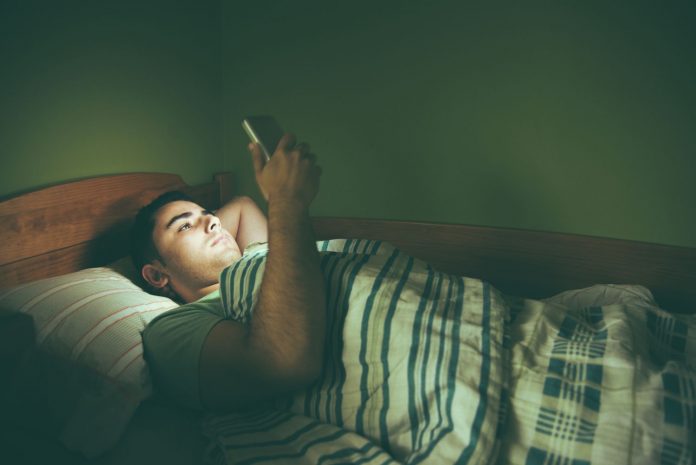We include products we think are useful for our readers. If you buy through links on this page, we may earn a small commission
Understanding healthy sleep
In today’s fast-paced world, a good night’s sleep has become something of an indulgence. It’s fallen down our list of priorities behind work, chores, social time, and entertainment.
However, sleep shouldn’t be a luxury. It’s as important to your physical and mental health as food and water.
The body’s need for sleep is a relatively new research field. Scientists are looking into what happens to the body during sleep and why the process itself is so essential. We do know that sleep is necessary to:
maintain critical body functions
restore energy
repair muscle tissue
allow the brain to process new information
We also know what happens when the body doesn’t get enough sleep. Sleep deprivation can cause a range of mental and physical problems, including impairing your ability to:
think clearly
focus
react
control emotions
This can result in serious problems in the workplace and at home.
Chronic sleep deprivation has been shown to increase the risk for serious health conditions such as diabetes, cardiovascular disease, obesity, and depression. It can also affect your immune system, reducing your body’s ability to fight off infections and disease.
How much sleep do you need?
Our sleep habits — and sleep needs — change as we age.
According to recommendations from the National Sleep Foundation, you should aim to get the amounts of sleep listed below:
Certain factors influence how much sleep you’ll need. Genetics can determine how long you sleep. Your genes can also play a role in how well you respond to sleep deprivation.
Likewise, the quality of sleep you get when you’re catching Zzz’s is a factor in how much sleep you ultimately need each night. People who get good quality sleep without waking up may need a little less sleep than people who frequently wake up or have trouble staying asleep.
Each person has unique sleep needs. Learn more about what determines yours — and how you can get more shut-eye.
Sleep tips and tricks
Healthy sleep may come down to tricking your body (and your brain) into having better, longer, and more restorative downtime. Here are a few ideas for boosting sleep quality and sleep duration:
Establish a sleep routine
Having a regular bedtime and sticking to it can train your body to get better sleep. Stick to a schedule even on weekends, holidays, and vacations.
Kick Fido out of the room
You may adore sleeping with your fluffy family members, but research shows pet owners who let their animals sleep with them have more sleep disruption and get lower quality sleep.
Cut out caffeine
Even if you only drink it during the day, the stimulant may keep you from getting shut-eye at night.
Don’t consume foods or beverages that contain caffeine any later than mid-afternoon. That includes:
tea
soft drinks
chocolate
Put down your phone
Vow to put away any and all electronics at least one hour before bed. The bright lights can stimulate your brain, which may make sleep more difficult.
Say no to a nightcap
If you sip on wine while watching TV, it’s time to break the habit. That’s because alcohol interferes with your brainwaves and natural sleep patterns.
Even if you sleep through the night, you won’t wake up feeling rested
Good sleep is about establishing good habits. Get even more tricks and tips here.
Sleep disorders
Sleep disorders are conditions that prevent you from sleeping well on a regular basis. Occasional sleep disturbances such as jet lag, stress, and a busy schedule may interfere with your sleep. However, if your sleep is disturbed routinely, it may be a sign of a sleep disorder.
There are several common sleep disorders:
Insomnia is a condition marked by trouble falling asleep, trouble remaining asleep, or both.
Sleep apnea is a sleep disturbance that occurs when your airway gets blocked repeatedly while you sleep.
Narcolepsy involves daytime “sleep attacks,” which are characterized by suddenly feeling very sleepy or falling asleep without warning.
Restless leg syndrome (RLS) is a sensation that you need to move your legs constantly, even when asleep.
Parasomnias are abnormal behaviors or movements during sleep, such as nightmares and sleepwalking.
Sleep quality is as important as sleep quantity.
Many people with sleep disorders sleep for an adequate amount of time but don’t reach a deep enough stage of sleep to feel well-rested and refreshed in the morning. Waking up frequently in the night can also prevent you from reaching the critical stages of sleep.
Sleep disorders may be a symptom of an underlying medical condition. Read about how these disorders are diagnosed and treated.
Sleep apnea
Sleep apnea is a common sleep disorder. It occurs when the muscles in the back of your throat relax and then narrow or close the airway. With the tissue blocking the air passage, you can’t get air in and air can’t get out.
During sleep apnea, you repeatedly stop breathing during sleep. You’ll briefly wake up to resume your breathing, even if you aren’t aware of it.
The interrupted sleep can lead to symptoms such as:
excessive daytime sleepiness
snoring
sleep deprivation
insomnia
dry mouth
headache
If left untreated, sleep apnea can lead to long-term complications and health risks such as heart disease, memory loss, diabetes, and high blood pressure.
If sleep apnea is mild, your doctor may suggest lifestyle changes. These include:
losing weight
quitting smoking
treating nasal allergies
For moderate or severe cases, your doctor may prescribe a continuous positive airway pressure (CPAP) machine. This device delivers a constant flow of air through a mask worn over your mouth and nose. This stream of air keeps passages from closing when you’re asleep.
If these treatments aren’t successful, your doctor may consider surgery to remove or reduce the tissue that closes into your airway. Your doctor may also consider jaw surgery. This procedure moves your jaw forward enough that air can freely move behind your tongue and soft palate.
If sleep apnea isn’t treated, it can lead to serious medical complications. Learn about the effects of apnea and why it’s important that you seek treatment.
Sleep paralysis
Sleep paralysis causes temporary loss of muscle control and function. It occurs in the moments right before or right after you’ve fallen asleep. It can also occur as you’re trying to wake up.
Sleep paralysis is one of the most common sleep disturbances. One estimated that 7 percent of people may experience it.
Symptoms of sleep paralysis include being unable to move your limbs, body, or head while you’re trying to sleep or wake up. These episodes may last a few seconds or several minutes.
Sleep paralysis doesn’t have a single known cause. Instead, it’s often thought of as a complication of some other condition.
For example, people who have the sleep disorder narcolepsy may frequently experience sleep paralysis. Other underlying conditions such as mental health issues and sleep deprivation can play a role, as can medication use and substance use.
Treatment for sleep paralysis primarily aims to address the underlying condition or issue that may be causing the loss of muscle function in the first place.
For example, doctors may prescribe antidepressants to people who have sleep paralysis caused by specific mental health issues, such as bipolar disorder.
You might be able to prevent some episodes of sleep paralysis. Discover preventive techniques, as well as treatments for this common sleep disturbance.
Sleep and insomnia
Insomnia is the most common sleep disorder. Around one-third of adults are believed to experience insomnia symptoms. Up to 10 percent have symptoms severe enough for them to be diagnosed with clinical insomnia.
If you experience insomnia, you may have difficulty falling or staying asleep. It can also cause you to wake up too early or prevent you from feeling refreshed after you sleep.
Types
Temporary insomnia can be caused by life events, including stress, trauma, or pregnancy. Changes to your daily habits, such as starting a job with non-traditional work hours, can also lead to temporary insomnia.
Chronic insomnia, however, may be the result of an underlying disorder or condition. These include
obesity
back pain
knee pain
anxiety or depression
menopause
substance misuse
Treatment
Common treatments for insomnia include:
Cognitive behavioral therapy (CBT). You’ll work with a therapist to treat underlying mental health issues, such as anxiety or depression.
Sleep hygiene training. A sleep expert will work with you to establish better sleep practices.
Treatment for underlying conditions. Your doctor will identify an issue that could be contributing to your sleep problem and seek to treat both conditions.
Medication. In the short term, some sleep medicines may help ease insomnia symptoms.
Lifestyle changes. Adjusting your daily schedule and activities may also prove beneficial. This includes avoiding caffeine and exercise near bedtime.
The bottom line
The primary goal of insomnia treatment is to help you get to sleep more easily. The secondary goal is to help treat any underlying cause or condition that’s keeping you from getting to sleep. Find out everything you need to know about the disorder.





























